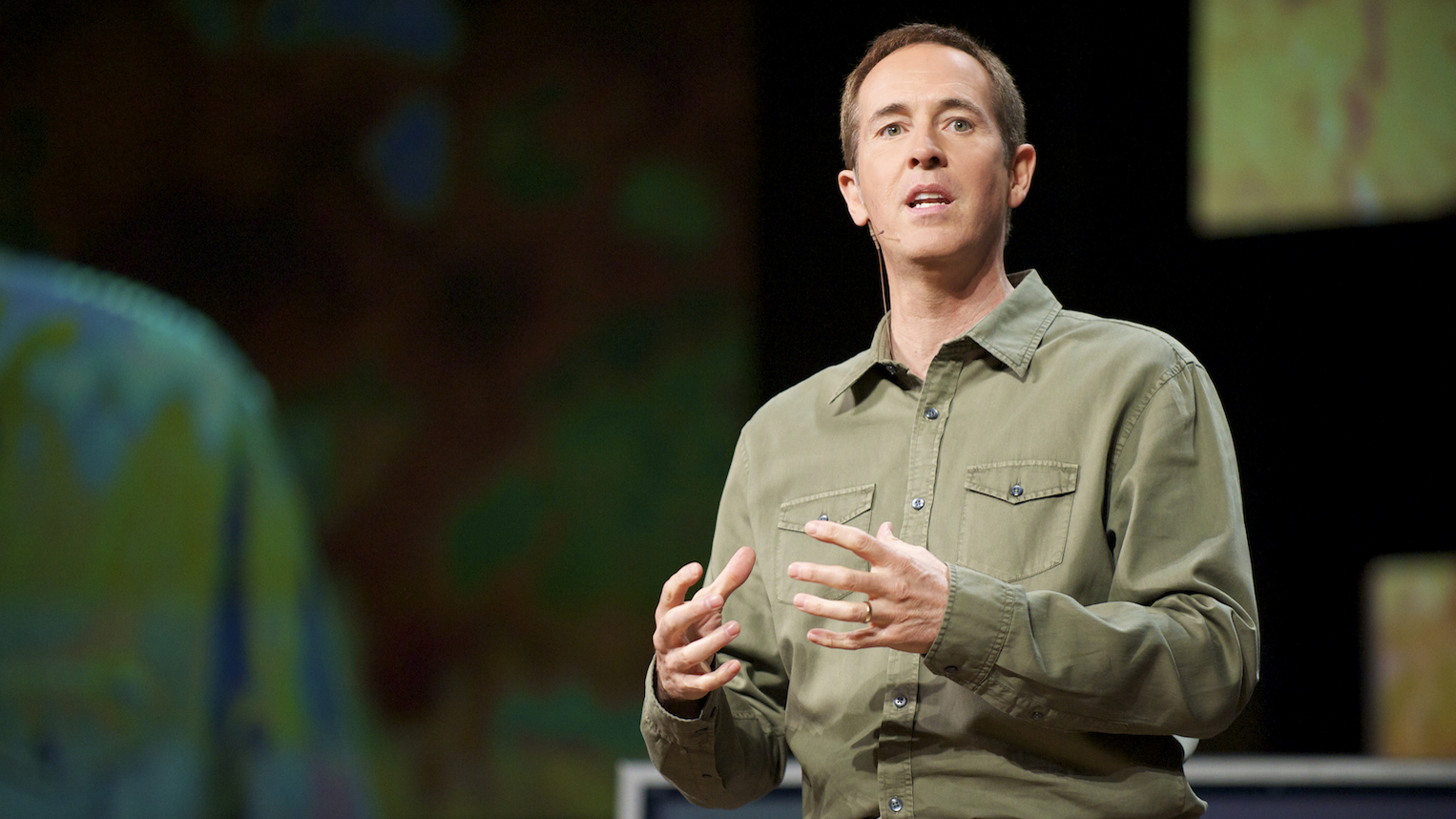Andy Stanley's many books and preaching style demonstrate his passion for reaching unchurched people. The founder and senior pastor of North Point Community Church in Alpharetta, Georgia, aims not only to effectively and engagingly communicate the gospel to an audience with wide-ranging beliefs and backgrounds (31,000 people attend North Point's five campuses any given Sunday) but also to help other preachers do the same. Stanley talked with CT assistant online editor Kevin P. Emmert about the best ways preachers can communicate the gospel to unchurched and biblically-illiterate people in their congregations.
Is it fair to assume unchurched people are biblically illiterate?
Obviously, there is a continuum, but I think it is safe to assume biblical illiteracy. At the same time, however, preachers need to be careful not to talk down to people. And there's a way to do that. Most pastors I listen to start halfway up the ladder and then go up from there. But there's a happy medium where we assume a certain social and cultural sophistication, but not a biblical sophistication.
Whenever pastors assume people in their congregation know certain things, they miss opportunities to teach. If a pastor makes assumptions year after year, then a whole generation has never heard [that truth] for the first time. If we assume too much, we communicate too little. Starting from the bottom rungs of the ladder every time we open the Scripture is really important. We often need to reinforce basic things we assume people may know. In my experience, just because people have heard something once or twice doesn't mean they understand it.
In your book Deep & Wide, you suggest preachers should use more specific citations like "Jesus says" or "Paul says" rather than "The Bible says." What's at stake in using the phrase "the Bible says"?
I believe this is an important discussion, but I'm also misunderstood here sometimes. It's easy to make this both a theological and a methodological conversation all at once. But this entire conversation, from my perspective, is one of method. It has nothing to do with my view of Scripture but is an attempt to keep people who are skeptical of the Bible's authority engaged in the sermon.
What I have learned, having done this for many years now, is this strategy has helped the Christians in our congregation have a greater appreciation for the historicity of the New Testament, that these were actual people who said these things.
In using phrases like "the Bible says," we assume a person is a Christian, because only a Christian takes the Old Testament and the New Testament as authoritative. So if I'm going to preach to people who aren't Christians, I have to leverage a different point of authority if I'm going to expect them to track along with me. Thankfully, most people in the United States are interested in what Jesus says. You'll find very few people who say, "I don't care about what Jesus says, because I don't care about Jesus."
To get a person to the point where they believe the Bible is authoritative, they first have to believe that Jesus is the Son of God. The reason Christians take the Old Testament seriously is because Jesus did. We don't think of it that way, because [most of us] didn't become a Christian by becoming Jewish first and then a Christian. But any Gentile who takes the Old Testament seriously does so because Jesus did.
In my book, I explain that I believe Adam and Eve are real people, not because the Bible says so, but because Jesus believed they were. Again, this is my approach to help people who really want to believe. They have questions and obstacles, and they're trying. As a pastor, I try to do anything I can to make it easier.
And when we use phrases like "The Bible says," we miss teaching opportunities. For instance, Every time I teach from Paul, I say, "Hey, if you're new to church or Christianity, you will love this guy, because Paul hated Christians. If you hate Christians, Paul's your guy. Paul hated them so much he wanted to put them in jail. I bet you know Christians you wish you could have arrested." Everybody laughs. "That's Paul. And then he became a Christian. Isn't that interesting? Now let's see what he has to say." To me, that's way more engaging than saying, "The Bible says."
How did this approach come about in your own preaching? Did you have an unchurched person—either a congregant, visitor, or friend—say, "Hey, when you say, 'The Bible says,' I'm offended"? Or did you realize on your own that using phrases like "Paul says" is more effective?
No one has ever complained or raised this issue. This was purely my asking the question, "How do I engage unchurched people with the Scriptures and keep them engaged as long as possible and make them want to come back the next week?"
James in, Acts 15, essentially says, "Let's not do anything to make it difficult for the Gentiles who are turning to God." That verse hangs on the wall in my office, and I look at it just about every day. So when you ask questions like, "How can I be true to the text? How can I be true to my faith and yet remove every unnecessary obstacle for unbelievers?" it occurred to me that the goal is to engage people with Scripture. The goal is to lead them to the place where they acknowledge Jesus to be who he claimed to be. They don't have to believe Noah built an ark and put animals on it to get there. In fact, the reason I believe the Noah story is historical is because Jesus did. So once I gained some clarity around that, it altered my approach to talking about the Scriptures. But it did not alter my confidence or belief in the Scriptures.
In your book, you say the Bible is not one book but a collection of books, written by over 40 men over the span of 1,500 years. You also say they all attest to one story. Couldn't that give preachers warrant for saying, "The Scripture says," or, "Scripture teaches"?
Yeah, it's not that I think it's altogether wrong or bad to use phrases like "The Bible says." In fact, I've said those before. My point is this: For preaching with unchurched people in the room, it's unnecessary and it might even be an obstacle. When I say "unnecessary," I think we can teach any passage in the Bible, we can teach any doctrine of the Bible, we can teach any narrative of the Bible without saying, "The Bible says," because all these narratives and doctrines are found in the specific books of the Bible, written by specific people for a specific purpose. In that sense it's not necessary.
However, it may be necessary to use those phrases when teaching on the authority of the text or why we believe in the authority of Scripture or why we believe Scripture is inerrant. There are times when we should do that. But when we say, "The Bible says," we should explain why.
How does this strategy challenge unchurched people?
It takes away one excuse not to listen. A Jewish lady once told me she likes to hear me preach because I don't expect her to believe everything. She was basically saying, "If you'll let me accept bits and pieces as I go, without expecting me to accept the whole thing, then I can track with you."
One time I taught with Bill Hybels in South Africa. While he was teaching one day, he told stories about two individuals with whom he was engaging in faith conversations. One of his neighbors said, "Okay, Bill, wait, wait, wait. If you're expecting me to believe the earth was created in a six 24-hour period, let's stop right there." Bill wasn't even talking about that. He was trying to engage this guy about Jesus. The other story was about a woman who brought up the Noah story. Bill told me, "Before I could get them to engage in who Jesus is, they'd already shut me down because they'd said, 'If at the end of this conversation I have to believe in a boat with animals or six 24-hour periods, forget it.'" And Bill, in front of the audience in South Africa, said, "What I found myself saying to [these two people] was, 'Don't worry about that part. Let's focus on Jesus.'"
So my point is this: Why create an unnecessary obstacle—it's all or nothing; it's the Bible—when the real issue is Jesus.
I get pushback on this approach. But the truth is no one had copies of the New Testament until the printing press. If you did, you were wealthy. We forget that for 1,500 years, people had only bits and pieces. They saw only a copy or heard portions of Scripture read. Nobody in A.D. 150 got up in church and said, "The Bible says." They leveraged the Old Testament and then talked about Jesus or read a copy of something Paul said. Using phrases like "The Bible says" is a modern phenomenon.
Do you find the approach of letting nonbelievers off the hook, saying, "Hey, you're not a Christian; you won't believe this and you don't have to affirm this," piques their interest more?
Yeah. Not only that, it teaches Christians an apologetic—how to talk about their faith with unbelievers. Preaching in that way models personal evangelism. In fact, this summer I'm going to do a three-part series on personal evangelism, and most of the elements are taken from what I try to model in my teaching. I really do think it's apologetic preaching, and it helps believers know how to talk perhaps more persuasively about their faith.
It's common for unbelievers to focus on apparent discrepancies in the Bible, conclude the whole thing wasn't divinely inspired, and then say that we can't trust any of it as true. How does your approach address this line of thinking?
This approach allows us to work around all those objections, because you don't have to believe the Bible is without contradiction in order to become a Christian. I went to Dallas Seminary, where we spent a lot of our time trying to smooth out all the apparent contradictions so we could say there were no contradictions. And what I found is once someone settles the issue of who Jesus really is, those apparent contradictions aren't a big issue.
A lady I know wrote an article about how she lost her faith because she found contradictions in Scripture. She somehow believed that the foundation of her Christian faith was a contradictory-less Scripture. So when she found contradictions in Scripture, her faith crumbled. That's so unfortunate because the foundation of the Christian faith is not a Scripture without contradictions. I think my approach actually runs around all of that.
Louie Giglio is a good friend of mine. We grew up together and we tell some of the same stories from our childhood. There are things he tells in those stories that I do not remember. I'll say, "Louie, that didn't happen," and he'll reply, "It did happen!" I'll tell the same story with slightly different details, but nobody disagrees with the fact that we actually got pulled over and Andy got put in jail and Louie had to go tell our choir director. So I don't think differing details undermine the nut of the story, especially when that story is the basis of what it means to become a Christian.
Should pastors stop using phrases like "The Bible says" in their sermons? We asked other experts if they agree.









